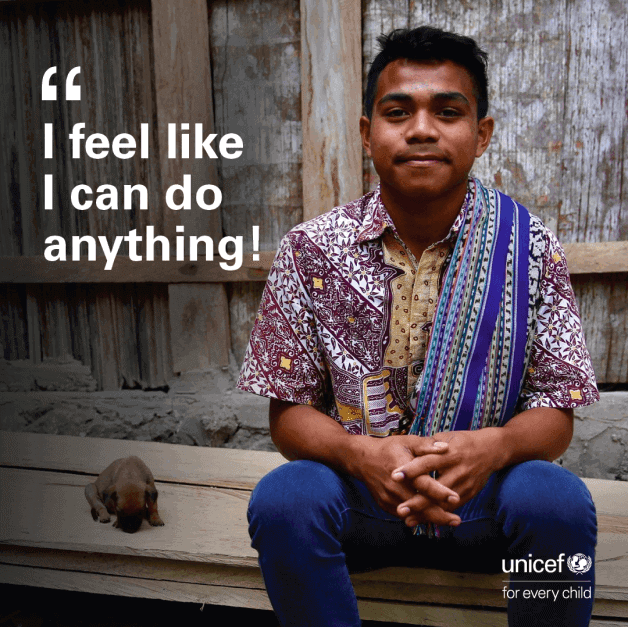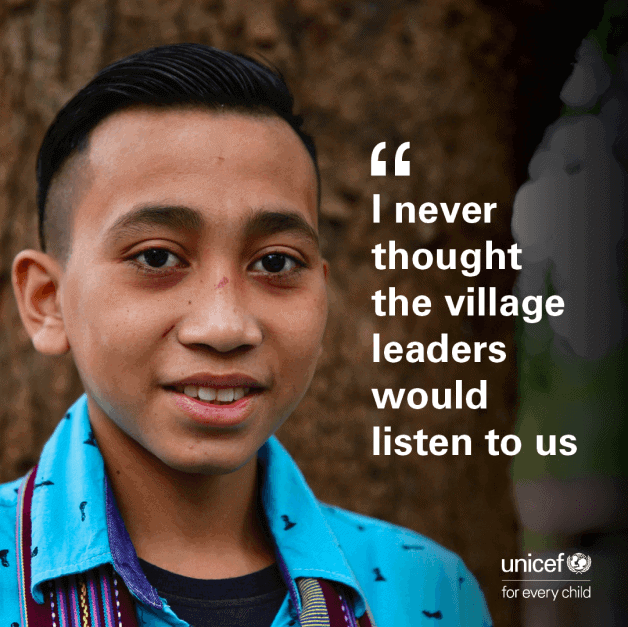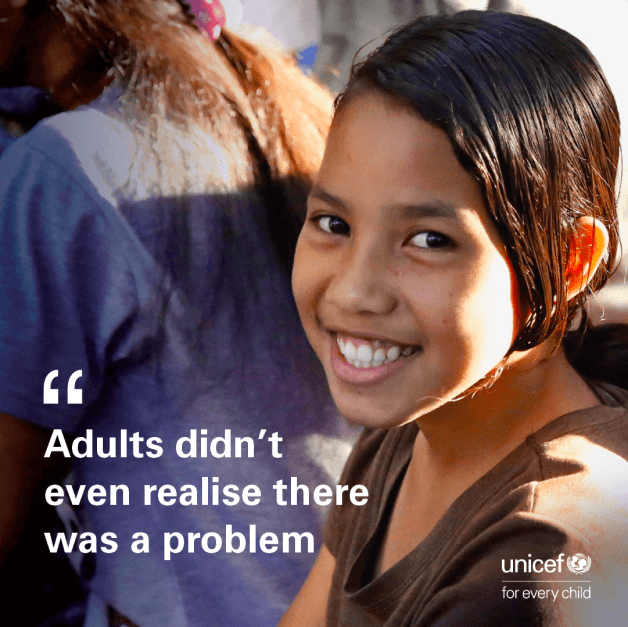Taking action to reduce school drop out
Yosua Yuwono, 15, realize that many of his friends were dropping out of school in Lampung, Indonesia. Erratic rains were causing crops to fail, making school fees unaffordable.
Adolescents have the right to influence or make decisions that affect their lives and communities
When adolescents are provided the opportunity to participate in decision-making or actions of civic engagement, they also are given the chance to acquire or strengthen skills and improve their sense of self: the more adolescents participate, the more skills they develop, the more they feel able to participate.
Measuring adolescent participation
How many adolescents are able to participate in decisions affecting their lives? How many have high self-esteem or a sense of self-worth? Are adolescents active in their communities?
To help answer these questions, UNICEF is developing indicators and data collection tools to measure adolescent participation.
Meaningful participation occurs when adolescent girls and boys, either individually or collectively, form and express their views and influence matters that concern them directly and indirectly. Participation and engagement opportunities must be inclusive, giving adolescents of varying ages, socio-economic background and physical, emotional and cognitive abilities, the chance to take part in shaping decisions and policies that affect their lives.
Until now, participation has often been measured in terms of the presence of enabling factors which support participation. These factors can include legislation on voting age, availability of safe spaces, and social and cultural norms. Participation has also been measured by process-driven indicators such as the number of adolescents who take part in specific meetings, organized activities, groups or governance structures.
The methodological work underway goes beyond the measurement of enabling factors – and will assess not only if adolescents are participating in their family, school or community lives, but also the impact of such participation on their well-being. The aim is to understand whether adolescents have the opportunities and skills to influence decision-making processes, share perspectives and participate as citizens and actors of change.
Ability
Ability
Measurement of ability will capture self-esteem, beliefs about their own capability to succeed and contribute, connections with adults or peers, and a sense of personal well-being.
Participation in decision-making
Participation in decision-making
Measurement of participation in decision-making will capture adolescents’ involvement in decisions that affect their lives in the household, at school, in the community and with respect to local government .
Civic engagement
Civic engagement
Measurement of civic engagement will capture adolescents’ involvement in activities that reflect their desire to have a voice, including volunteering, social entrepreneurship and campaigning.




